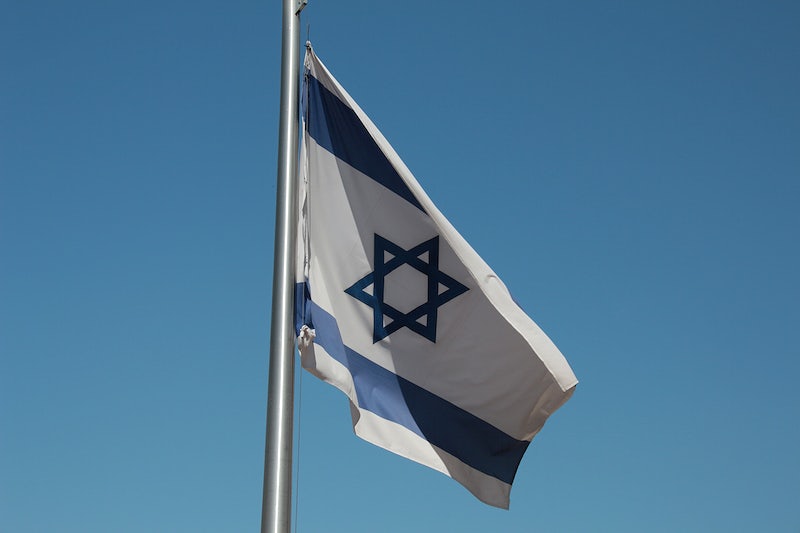It’s ironic that US Jews are being urged to enter the fray to save Israel’s democracy. Our job is to help lower the flames.
Please note that the posts on The Blogs are contributed by third parties. The opinions, facts and any media content in them are presented solely by the authors, and neither The Times of Israel nor its partners assume any responsibility for them. Please contact us in case of abuse. In case of abuse,
Report this post.
Unless you were on planet Mars for the last month, you surely are aware of the demonstrations protesting judicial reform and concerns about the state of Israel’s democracy.
This time the criticisms are coming from more than the usual echo chamber of Tom Friedman, J Street, Truah and their comrades, who can always be counted on to find a way to criticize whatever Israel is doing. Traditional staunch defenders who are usually reluctant to publicly criticize Israel, such as Hillel Halkin and Abe Foxman have expressed sharp and pointed criticisms of the current government and its direction. Stalwarts of moderation, Daniel Gordis, Matti Friedman and Yossi Klein Halevi have even called upon Diaspora Jews to weigh in on the current state of affairs. Their unprecedented criticisms have been fanned and matched by mass demonstrations in Israel opposing judicial reform and other proposals and objecting to extremists in the current government. American rabbis who have joined the denunciations have received widespread coverage in the secular press and Jewish media, with some going so far as to publicly state their refusal to say the Prayer for the State of Israel.
With such overwhelming seeming unanimity about the current dismal state of affairs, accompanied by calls for Diaspora Jews to join the protests, and the relative absence of dissent or views in the press other than those of the opposition, it is not surprising that American Jews are believing the worst about the state of Israel’s democracy and assume that they too should join in adopting what appears to be the prevailing position critical of government proposals.
As a rabbi living in the Diaspora, I would like to dare to offer a different point of view and suggest we step back from the precipice and keep things in perspective.
I find it ironic that American Jews, who are not citizens or voters in Israeli elections are being called upon to enter the fray to save Israel’s democracy. Democracy means that sometimes the party you vote for and policies you advocate win and sometimes you lose. The large protests, with the sea of Israeli citizens proudly carrying Israeli flags, are a sign not of the death of Israel’s democracy, but of its vitality.
I do not wish to minimize the appropriateness of concerns about judicial reform, but think it is important to recognize that the issue is far more complex than most realize and more obscure than the headlines that, by their very nature, do not explain the history or delve deeply into a situation that has been festering for years. Without defending neither the status quo nor the proposals being introduced to reform Israel’s judiciary, I urge Israel’s friends in the Diaspora to familiarize themselves with the reasons for the calls to change the system to better understand why so many Israelis feel the current system is too far-reaching and in need of reform.
I also am not inclined to panic because I recognize that it is highly unlikely that what has been proposed will be the final outcome. One of the reasons things appear so alarming and messy is because we are witnessing how sausage is made.
The actions, affiliations, extremism and statements of some of the members of the current government are inexcusable and reprehensible. I have no problem expressing my personal opinion that it is most unfortunate that these individuals are in the governing coalition. Yet not enough credit is given to how swiftly and firmly Prime Minister Netanyahu has refuted and repudiated the offensive comments and extremist polarizing proposals made by some of the ministers serving in his government.
Shortly after the coalition was formed, when one of his ministers said he was going to cancel the Gay Pride Parade in Jerusalem, the next day, Bibi publicly stated, “No you’re not” and affirmed his support for the LBGTQ community. In fact, Amir Ohana, an openly gay member of the Likud party was elected Speaker of the Knesset the following day with his blessing and support.ADVERTISEMENT
When a member of his party proposed a strict dress code and other clearly unacceptable restrictions at the Kotel, it was also struck down the next day by the Prime Minister. He accepted, albeit reluctantly, the Court’s decision that Arye Deri could not serve in the Cabinet. Netanyahu, for all his faults, recognizes what is at stake and the importance of acting responsibly, has shown his intent to rein in the extremist elements of his coalition.
It is interesting to note that there was no outcry or concern expressed when members of Arab parties in the previous government shared the same anti-gay homophobic positions.
And while on the subject of dangerous incendiary remarks, also not receiving the attention and condemnation that it deserves is the outrageous incitement coming from the opposition. Yair Lapid’s demagoguery should be called out. Ehud Barak has referred to the current government as “death cult triumphant messianists” and accused it of “carrying out a coup, calling for “street actions” to oppose what he calls “the fascists.” Benny Gantz has spoken openly of civil war. Some leaders have called upon citizens to take violent action. Ehud Olmert said the time for speeches is past and called for war.
The rhetoric and divisions are excessive, divisive and dangerous. I am concerned that the drumbeat of dire predictions about the harm that may be done to Israel’s economy runs the risk of becoming self-fulfilling prophecies.ADVERTISEMENT
It is against this backdrop that Israel’s statesman-like president, Isaac Herzog has issued calls for dialogue and moderation, urging all parties to turn down the volume and intensity of the debate and to seek a compromise that takes into account the justifiable and rational aspects of both sides’ concerns and positions.
As he has said, “This is a sensitive and explosive period in the Israeli public. I am awake to the voices heard from here and there, and to all the pains, worries, and anxieties. It doesn’t go unnoticed and keeps me busy. In the last few days, I have been working and holding talks with many parties and doing everything in order to bring about the existence of a dignified and respectful dialogue, hoping to reach as broad an understanding as possible. I appeal to you elected officials and citizens of Israel from the entire public and political spectrum – show restraint and responsibility. We must calm the spirits and lower the flames.”
American rabbis have an obligation to heed his advice and do what we can to calm the spirits and lower the flames.
We can best help Israel’s democracy by encouraging whichever position we support to recognize and accept the imperative to find a way to solve the current standoff by working for and accepting the President’s call to find a compromise, one that will best accommodate the need for reform while preserving judicial independence.
Our relationship to Israel should transcend concerns, legitimate as they may be, over proposed changes and reforms, ministerial appointments of individuals not fit for office and other things that may be disturbing. For while all of this is going on, Iran continues its march towards acquiring nuclear capability, Palestinian teenage terrorists attack and kill Jews and the PA distributes candies to children celebrating the murder of 6 and 8-year-old children, and Israel sends aid to Turkey and Syria.
As President Herzog stated in his efforts to mediate a compromise and to reassure a public that has been rattled, “Israeli democracy is long-standing and stable. The world of values of Israeli society is not easy to challenge.”
We can best help Israel’s democracy by ensuring that opposition to policies of the new government not become opposition to Israel, that our commitment not be conditional, and that our reactions not lead to distancing from Israel or diminished support for it.
Originally published in The Times of Israel





